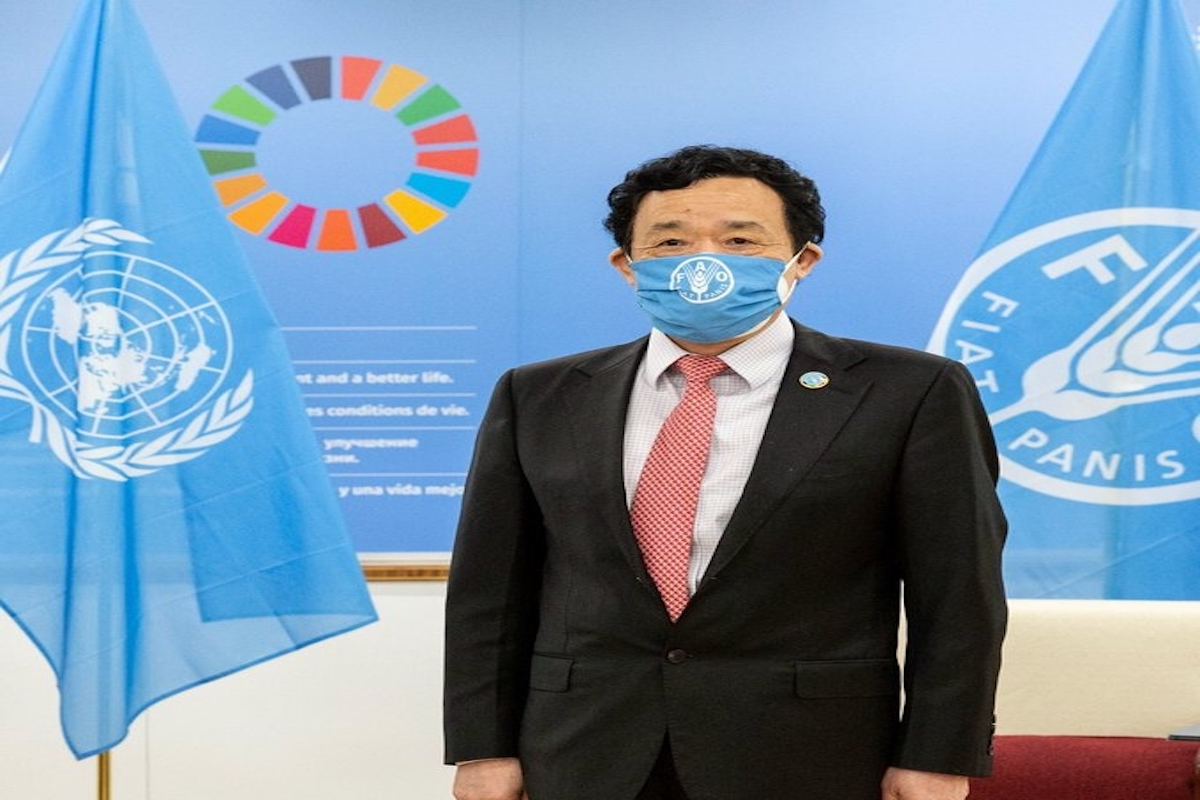Nepal must brace for food shortages
Consequently, the global food crisis will directly impact countries like Nepal, which rely, to a significant extent, on imported food to sustain their food security.
Qu Dongyu, head of the Rome-based Food and Agriculture Organization (FAO) of the UN, has called on the G7 economies to take steps to anticipate future food shortages.

FAO Director-General QU Dongyu. ( Credit : @FAO/twitter)
Qu Dongyu, head of the Rome-based Food and Agriculture Organization (FAO) of the UN, has called on the G7 economies to take steps to anticipate future food shortages.
Qu said the Russia-Ukraine war proved the need for a global effort to limit increases in food prices like those currently threatening poor nations in Africa and Asia, reports Xinhua news agency.
Advertisement
“We need to actively identify ways to make up for potential future gaps in global markets, working together to foster sustainable productivity increases where possible,” he said.
Advertisement
Qu’s remarks were part of the lead-up to next month’s G7 summit in Germany, where dramatic increases in food prices are expected to be a major topic of discussion.
Even before the start of the Russia-Ukraine conflict, the world’s most vulnerable people were under threat.
FAO data showed that at the end of last year, around 193 million people globally were “acutely food insecure and in need of urgent assistance”.
That number represents an increase of nearly 40 million people compared to a year earlier.
Qu said that it is in this dramatic content that we now face the conflict in Ukraine.
The conflict has had a dramatic impact on world food prices, according to FAO data.
In March, the 32-year-old FAO World Food Price Index reached its all-time high after its largest one-month increase, mostly due to the impacts of the conflict.
In April, the index dipped modestly from its record high.
Advertisement